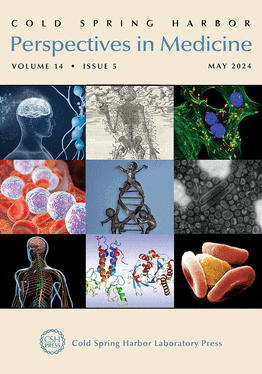免疫代谢对肿瘤微环境的不适应
IF 7.8
2区 医学
Q1 MEDICINE, RESEARCH & EXPERIMENTAL
引用次数: 0
摘要
肿瘤由癌细胞和多种组织常住和浸润细胞类型组成。然而,对肿瘤新陈代谢的研究主要是针对整个肿瘤或癌细胞,对浸润免疫细胞的新陈代谢仍然知之甚少。现在,一系列分析和代谢物挽救研究清楚地表明,肿瘤微环境(TME)的代谢适应直接阻碍了 T 细胞和巨噬细胞的效应功能。对肿瘤微环境的代谢适应和代谢免疫抑制的驱动因素包括必需营养物质的耗竭、废物或免疫抑制代谢物的积累,以及通过改变翻译后修饰进行的代谢信号传递。然而,每个浸润免疫细胞亚群都不尽相同,都有特定的代谢要求和适应性,这些要求和适应性可能对抗肿瘤免疫产生不良影响。在此,我们回顾了实体瘤中 T 细胞和巨噬细胞的适应性和代谢免疫抑制。最终,了解和应对这些挑战将改善癌症免疫疗法和采用性嵌合抗原受体 T 细胞疗法。本文章由计算机程序翻译,如有差异,请以英文原文为准。
Immunometabolic Maladaptations to the Tumor Microenvironment
Tumors consist of cancer cells and a wide range of tissue resident and infiltrating cell types. Tumor metabolism, however, has largely been studied on whole tumors or cancer cells and the metabolism of infiltrating immune cells remains poorly understood. It is now clear from a range of analyses and metabolite rescue studies that metabolic adaptations to the tumor microenvironment (TME) directly impede T-cell and macrophage effector functions. The drivers of metabolic adaptation to the TME and metabolic immune suppression include depletion of essential nutrients, accumulation of waste products or immune suppression metabolites, and metabolic signaling through altered posttranslational modifications. Each infiltrating immune cell subset differs, however, with specific metabolic requirements and adaptations that can be maladaptive for antitumor immunity. Here, we review T-cell and macrophage adaptation and metabolic immune suppression in solid tumors. Ultimately, understanding and addressing these challenges will improve cancer immunotherapy and adoptive chimeric antigen receptor T-cell therapies.
求助全文
通过发布文献求助,成功后即可免费获取论文全文。
去求助
来源期刊

Cold Spring Harbor perspectives in medicine
MEDICINE, RESEARCH & EXPERIMENTAL-
CiteScore
14.30
自引率
1.90%
发文量
44
审稿时长
4-8 weeks
期刊介绍:
Cold Spring Harbor Perspectives in Medicine is a monthly online publication comprising reviews on different aspects of a variety of diseases, covering everything from the molecular and cellular bases of disease to translational medicine and new therapeutic strategies.
Cold Spring Harbor Perspectives in Medicine is thus unmatched in its depth of coverage and represents an essential source where readers can find informed surveys and critical discussion of advances in molecular medicine.
 求助内容:
求助内容: 应助结果提醒方式:
应助结果提醒方式:


